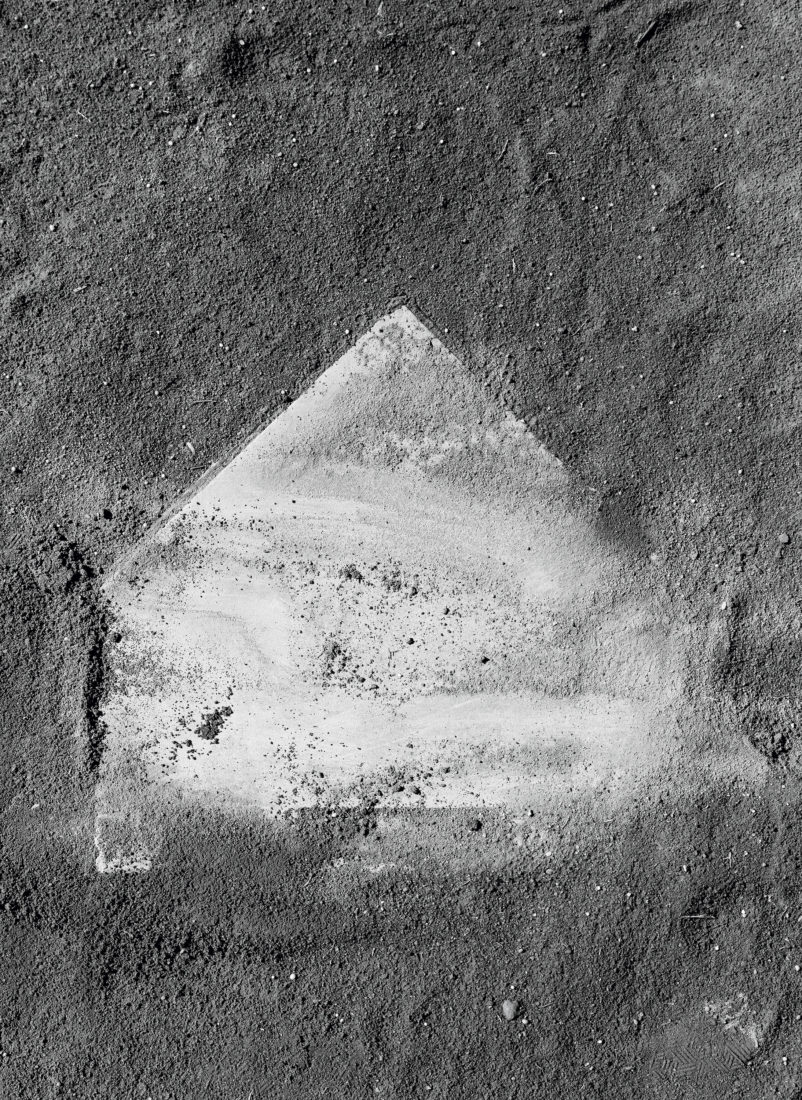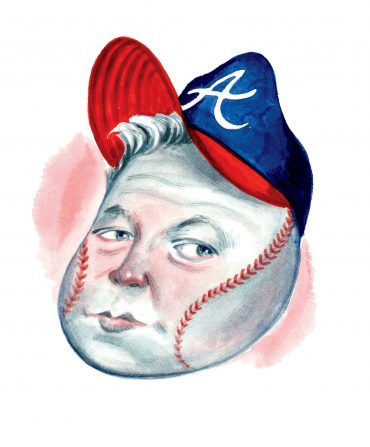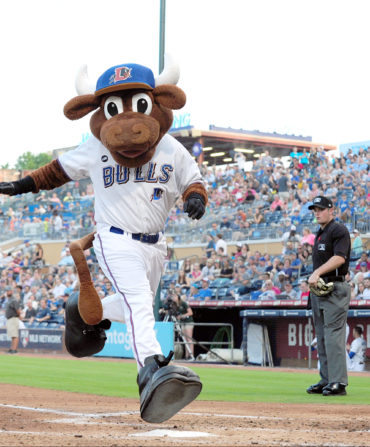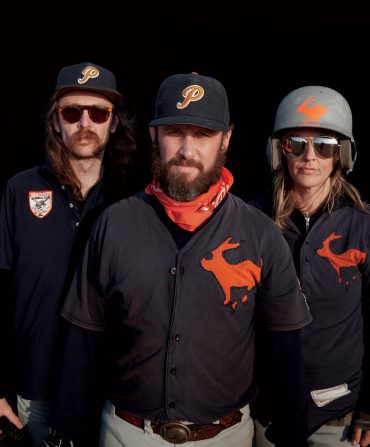While speaking at our father’s funeral, my brother, Cliff, who happens to be a stand-up comedian, referred to him as the “redneck Buddha.” I agree with that characterization, and if you knew my father, you would agree with it too. Like the Buddha, he clung to nothing and never desired a thing aside from a fresh pack of Winston Lights or a cold can of Sun-Drop. He existed in a constant state of contentedness while the world went about its business.
My father’s contentment was never better displayed than at Sims Legion Park in our hometown of Gastonia, North Carolina. Built in 1950 and renovated in 1977, the year I was born, Sims fits the mold of so many small minor-league ballparks: The covered area behind home plate is three stories of brick and concrete, with uncovered bleachers extending down each baseline. The stadium has been home to the Browns, the Rockets, the Rippers, the Pirates, the Cardinals, the Expos, the Jets, and the Rangers, which was the team I recall the most. For the past seventeen years, Sims has hosted the Gastonia Grizzlies, a collegiate Coastal Plain League team that routinely sets league-wide records for attendance.
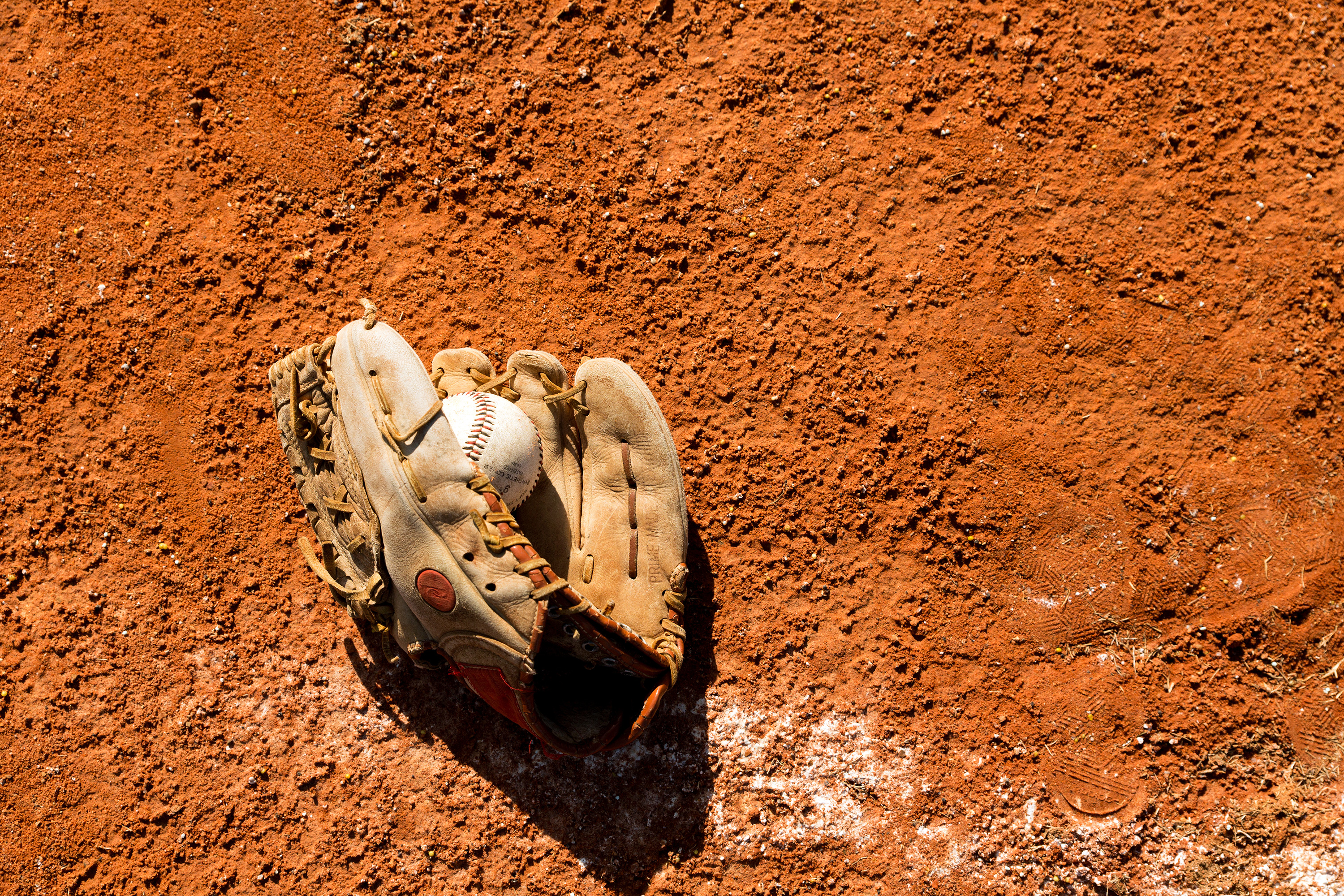
Margaret Houston
But Sims was quieter back in the 1980s. My earliest memories of live baseball are of warm nights in the bleachers along the third-base line, the scratchy voice of the PA announcer competing with the summer sound of crickets and the hum of traffic on nearby I-85. Banners and billboards that hung in the outfield advertised Tony’s Ice Cream, Cheerwine, Mr. Nobody Tire Service, and other businesses and products that felt particular to Gastonia. In the decades since, I have visited storied major-league parks—Fenway, Shea Stadium, Camden Yards—but none of them compare to my early impressions of Sims. Perhaps it is the wonder of youth or the magic of baseball that lends such grandiosity to that old ballpark. Or the fleeting nostalgia of a grown son wanting to return to a time and a place in the bleachers alongside a quiet, gentle man he will never see again.
My father would sit still through all nine innings, speaking only to call pitches—“Look for a slider”—and moving only to slip my brother and me a few dollar bills so we could haunt the concession stand. While many men enjoy baseball because it offers cold beer and a few hours away from home, my father bought season tickets simply because he loved the game. Besides, Sims was one of the few minor-league parks that did not sell beer, and with my brother and me in tow, there was no hope for him of escaping the chaos of home.
Unlike our father, my brother and I enjoyed Sims for any number of reasons aside from baseball, the most obvious being the concession stand behind the dugout on the first-base line. Every memory I have of attending games in Gastonia involves dirt and heat, and in my recollections my brother and I are sweating as we shuffle along the dusty walk behind home plate and down the concrete stairs where the smells of chili, Fritos, and hot dogs greet us. After burning through our money, we would climb beneath the bleachers along the thirdbase line and search for loose change and useless things that might turn out to be treasures for two boys: tattered old baseballs, pocketknives, and unopened cans that were so faded as to render soda indistinct from contraband beer. Throughout the game, we would return to my father like two moons orbiting a planet. We would ask for more money for snacks. We would show him the trinkets we had found. We would sit just long enough for him to recount a brilliant play he had just witnessed. And then we would set off again to explore.
A surprising array of major-league talent passed through Gastonia during the years I was sitting and not sitting in the stands with my father; Sammy Sosa, Iván “Pudge” Rodriguez, and Juan González all played for some iteration of Gastonia’s team. Over the years, while watching Sosa and Mark McGwire chase Roger Maris’s home-run record or rooting for Rodriguez during the World Series, my father would recount specific plays he had witnessed the men make back when they were skinny teenagers on an old ball field off I-85. I do not recall a single one of those plays. I imagine they would have been difficult to see from beneath the bleachers or from the bottom of a box of popcorn.
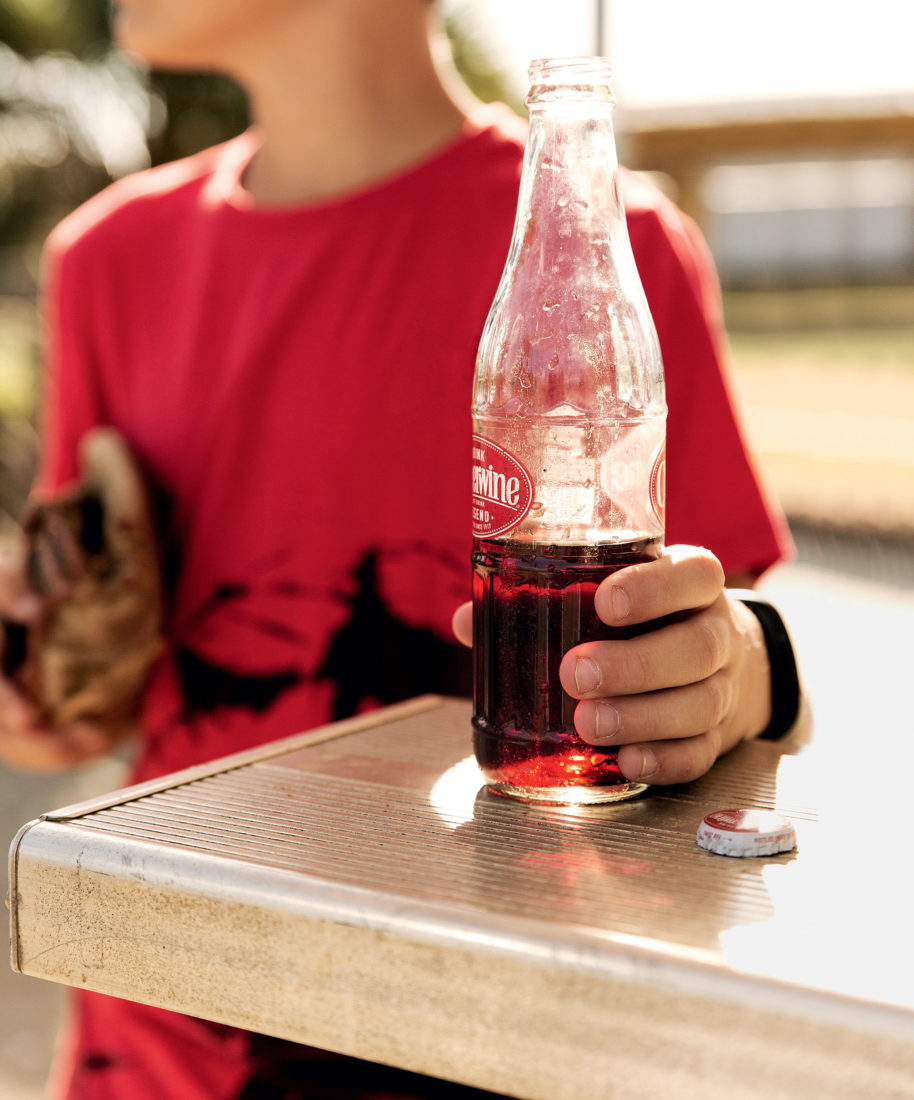
Photo: Margaret Houston
Sipping Cheerwine from a glass bottle in the stands.
What I do remember is the time the mascot—Rowdy Ranger, a cowboy with a long black beard and a ten-gallon hat—took a tumble and fell onto my little brother’s lap, spilling his Coke and knocking over his box of Cracker Jacks. Once we showed up at the ballpark and found a man with a football player’s build and movie-star good looks standing by the ticket booth and greeting fans. “That’s Roman Gabriel,” my father whispered. “He’s famous.” Gabriel, the Rangers president for a time, had been an all-American quarterback at NC State and spent fifteen years in the NFL before retiring to the broadcast booth and a few roles in Hollywood films alongside the likes of John Wayne. I also remember the time the former-player-turned-comedian Max Patkin, dubbed the “Clown Prince of Baseball,” took to the field on a muggy night. Nearing seventy then, he paraded around as if onstage, commenting on every missed call, every foul ball, every sideways glance he could get from an umpire, and earning every laugh the crowd would give him.
But of all my memories of Sims, the one that stands out most has nothing to do with baseball. As is often the case in the South, the local baseball field was often put to other uses, and one of the most common was the traveling religious revival. I was probably twelve years old when my mother, who rarely attended games, packed us up on a Wednesday night to go hear the word delivered by an itinerant preacher. That night, I met a girl about my age, and I knew for certain that I was in love. The next night, I persuaded my father to take me back to the revival, where I sat with the same girl. I was perched at the top of the stands—the girl’s sweaty hand in mine—my heart raced, and my mind waged war between puberty and salvation. From there, I could see the back of my father’s head. Hellfire and damnation were being preached, but I knew he wasn’t thinking about those things, because my father was not one to worry about his place in eternity. No, I feel certain that, alone in the stands, he was thinking about baseball.
Now, years later, I wish I had kept my seat alongside him more often. I wish I had been less interested in the concession stand and a girl whose name I have forgotten and the bleachers’ buried mysteries and more interested in spending time with my father.
The last baseball game we watched together was in my parents’ bedroom in Oak Island, North Carolina, where they moved after I left for college. My father was in a hospital bed by the window. His eyes were closed, his breathing shallow. I sat in a chair beside him. On television, his beloved Atlanta Braves were losing to the Milwaukee Brewers. It had been almost thirty years since we sat together in the stands in Gastonia, but I could still picture him there. I watched as the Braves’ pitcher, who was not even alive when my dad and I first watched baseball together, went into his windup.
“Look for a slider, Dad,” I whispered, not knowing whether I would be correct but knowing that it did not matter. I was with my dad, and there was baseball to watch, and there was nothing else I wanted and nowhere else I wanted to be.


